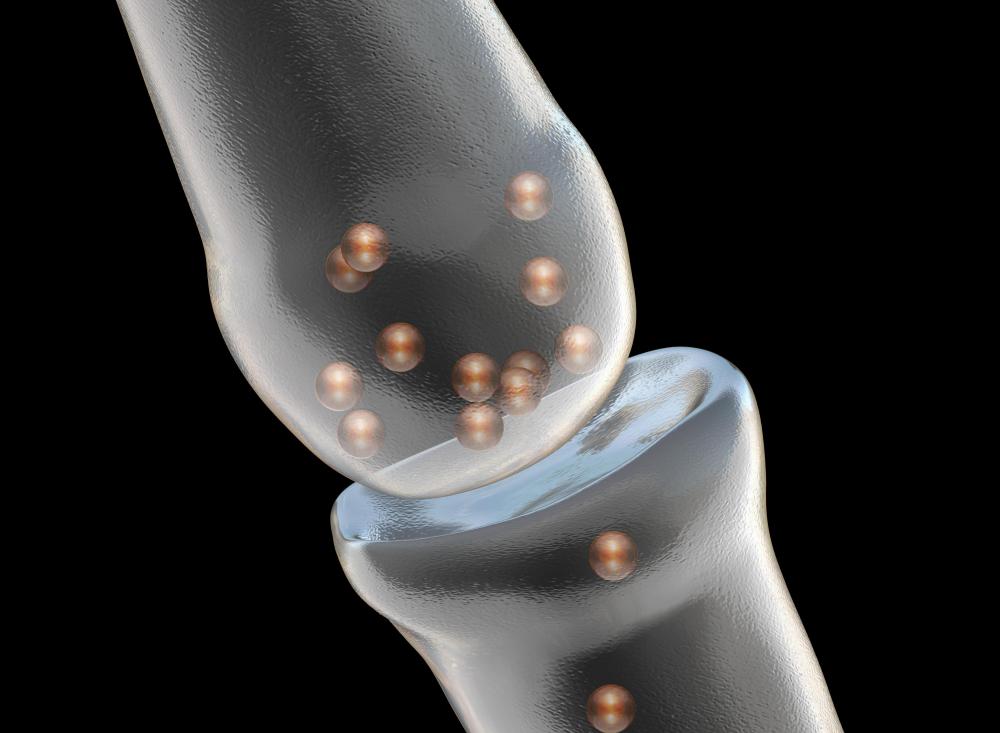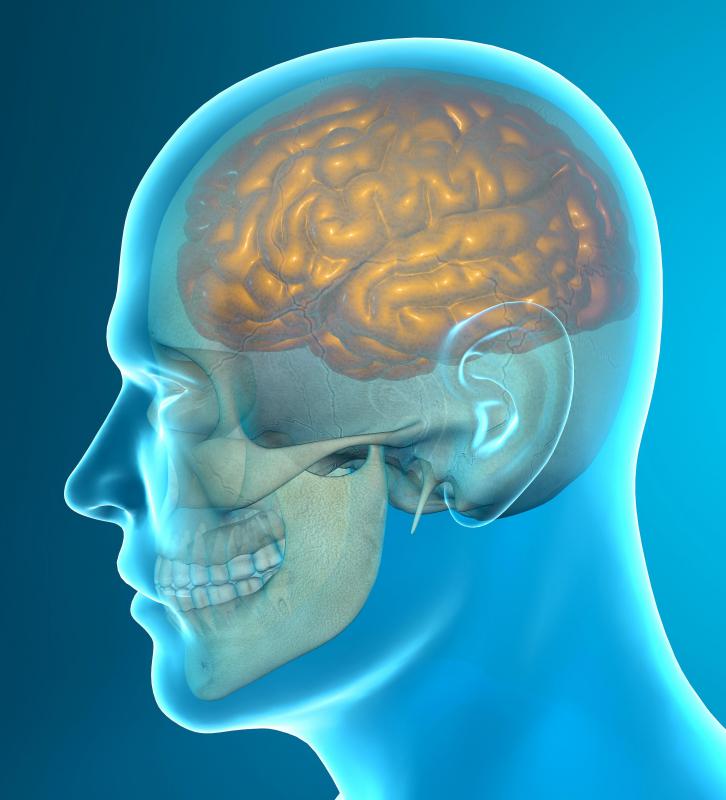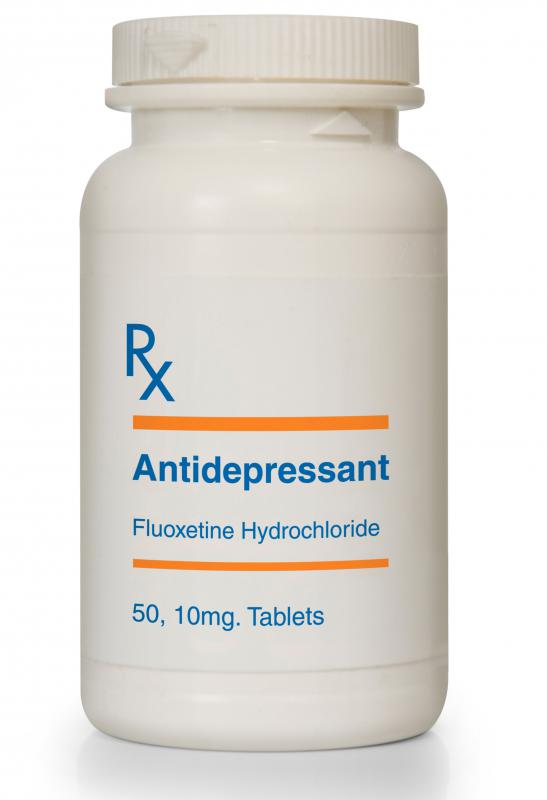At TheHealthBoard, we're committed to delivering accurate, trustworthy information. Our expert-authored content is rigorously fact-checked and sourced from credible authorities. Discover how we uphold the highest standards in providing you with reliable knowledge.
What Is Neurotransmitter Reuptake?
Neurotransmitter reuptake allows a neuron to absorb a signaling chemical after it has sent a message, so it can be reused. In addition to allowing the brain to recycle valuable chemicals, it acts to put a brake on signals, limiting the amount of time neurotransmitters spend in the synapse. This can be important for regulation of certain reactions where the nervous system doesn’t want an extended reaction to a stimulus. Certain medications act by inhibiting this process to increase the circulation of signal chemicals in the synapse.
The process of sending chemical signals between neurons starts with the release of a neurotransmitter which enters the space between cells, known as the synapse. If the cell on the other hand has the right receptors, the chemical can lock on to stimulate or inhibit the neuron. In neurotransmitter reuptake, carrier molecules attach to the used chemicals and push them back into the terminal, the area of the neuron that releases them. This process happens in a very short period of time, allowing neurons to send messages, recover, and transmit again at a rapid rate.

Recycling neurotransmitters can help the brain recover more quickly between signals, because it will have new resources available to send another signal. These chemicals take time and energy to make and increasing efficiency helps the brain function. The neurotransmitter reuptake process also limits the amount of time spent in the synapse, so people don’t experience extended stimulation of selected neurons. Carrier proteins can be used to control the duration of a neurotransmitter’s signal.

Dopamine, norepinephrine, and serotonin are common examples of chemicals processed with neurotransmitter reuptake. Some are more subject to reuptake than others, depending on their function. Between individuals, there can be considerable variations in the concentration of chemicals in the brain and the number of neurotransmitters produced over time. The process can also be affected by diet, medications, and other environmental factors. This can result in very different levels of cognitive function and activity.

People with certain neurochemical imbalances may experience neurotransmitter reuptake too quickly, or a reduced production of certain chemicals in the brain. They can benefit from medications that inhibit the reuptake process; Selective Serotonin Reuptake Inhibitors (SSRIs) are an example. Medications may help address depression, anxiety, and other mental health problems. They must be used and stopped with care, as the brain needs time to adjust to them and to recover when patients stop taking them.
AS FEATURED ON:
AS FEATURED ON:

















Discussion Comments
Why does the brain absorb chemicals to re-use them instead making more of that chemical?
@litarally45-- I'm not a doctor but we studied this in class recently.
There are definitely long-term affects of SSRIs on the brain. Since these medications prevent neurotransmitter reuptake and increase the amount of seratonin in the synapse, the neurons may not respond to these chemicals as they used to after some time.
What this means is that the brain starts to build tolerance to the increased chemical and the medication may not work as well as it did in the beginning.
There might be other affects as well, but I'm just familiar with these. You might want to speak to your doctor about these concerns. Like I said, I'm not a doctor but I think a re-evaluation would be necessary after taking an SSRI for two years.
Overall, I'm happy with my medication, but I do wonder about how the medication is affecting my brain's neurotransmitter reuptake function for the long-term.
I believe that our body was made perfectly and there is a reason for every function. If our brain was made to absorb and reuse neurotransmitter, there must be a reason. Is it a good idea to be changing the way the brain works like this?
Post your comments